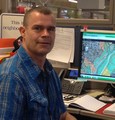Georgia Basin IREI Deliverable: 6th in Beyond the Guidebook Primer Series explains how to apply ecosystem-based understanding to achieve “Sustainable Watershed Systems”

“Implementation of ‘whole systems’ thinking would include incorporating the benefits provided by nature into the delivery of local government services,” stated Peter Law. “Community-based Environmental Stewardship has been an institution in BC for a generation. Today, community organizations partner with local governments to monitor and restore local watershed health. These groups provide thousands of volunteer hours to restore aquatic habitats,” stated Peter Law.










